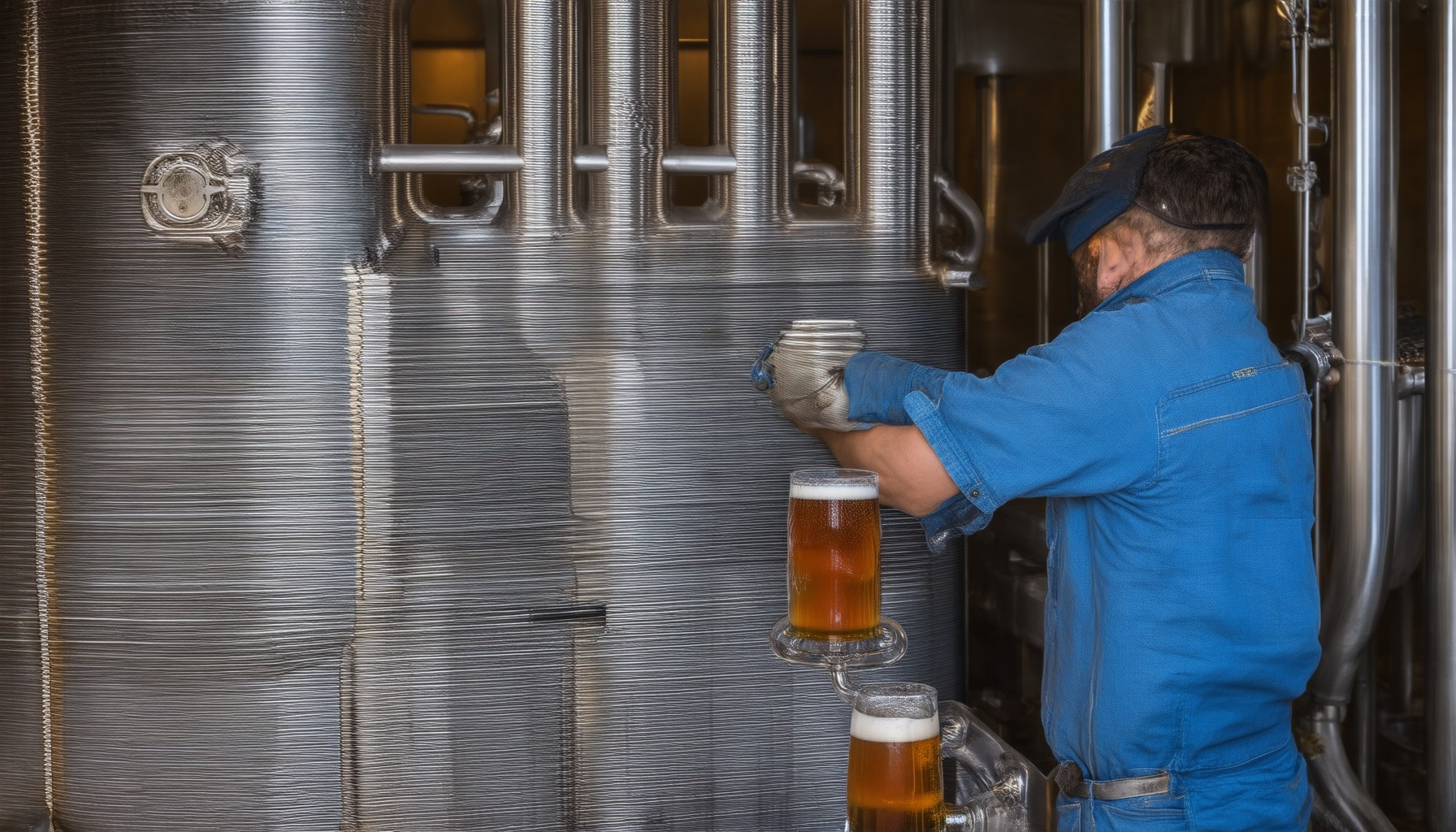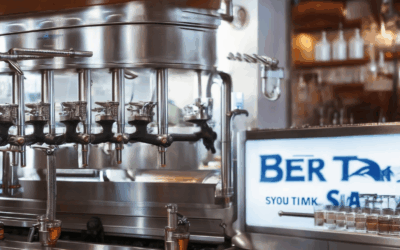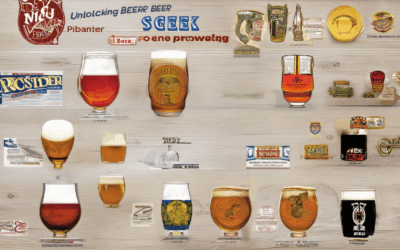Are you passionate about beer and curious about the career opportunities that come with it? While many of us enjoy crafting a perfect pour, few realize the diverse and lucrative paths available in the beer industry. From mastering the art of brewing to managing a bustling brewery, there’s a role for everyone who loves beer. Whether you’re considering a career in brewing, packaging, or distribution, the beer sector offers unique opportunities across various locations, from breweries in California to those in Texas. This guide dives into everything you need to know about beer jobs, including salaries, industry trends, and how to break into this rewarding field.
Key Takeaways
- Breaking into the Craft Beer Industry: Pursue education and certifications, gain hands-on experience, network at events, seek internships, and explore advanced roles to kickstart your career in brewing.
- Beer Distributors’ Role: Generate profits through efficient operations, favorable contracts, and vertical integration, while managing costs and optimizing distribution routes.
- Brewing as a Lucrative Career: Enjoy creative freedom, stable demand, and advancement opportunities, with salaries potentially exceeding $60k for experienced professionals, despite facing challenges like long hours and competition.

How Much Do Beer Workers Make?
The estimated annual salary for a brewery worker in the United States typically ranges between $35,000 and $65,000, depending on factors such as experience, location, and the size of the brewery.
- Average Salary: Approximately $41,058 per year, according to Glassdoor’s latest data.
- Location Differences: Brewers in urban areas like New York or Los Angeles often earn higher salaries due to the cost of living and demand for skilled labor.
- Experience Impact: Entry-level workers may earn around $36,000, while those with 5+ years of experience can earn up to $60,000 annually.
- Benefits: Many breweries offer health insurance, retirement plans, and other perks, which contribute to overall compensation.
- Varying Roles: Positions such as head brewer or master brewer command significantly higher salaries, often exceeding $70,000 annually.
- Unionization Impact: In regions with strong union presence, wages may be higher and more stabilized due to collective bargaining agreements.
For more details on brewery worker salaries and career growth in the craft beer industry, visit The Goods On Tap .
Do Breweries Make Good Money?
Breweries can indeed be highly profitable businesses. The gross profit margin for breweries typically falls between 74% and 92% , reflecting the relatively low cost of production compared to other industries. However, profitability also depends on factors like scale, location, distribution channels, and competition.
Key considerations for brewery profitability include:
- Cost Efficiency : Breweries benefit from economies of scale, as producing larger batches reduces per-unit costs. Additionally, many breweries reuse packaging materials and byproducts, further optimizing expenses.
- Revenue Streams : Most breweries generate revenue through beer sales, but many also earn income from taproom visits, merchandise sales, and special event hosting. These additional streams contribute significantly to overall profitability.
- Market Demand : Craft beer continues to grow in popularity, with increasing consumer demand for unique flavors and local products. This trend supports brewery success, particularly those specializing in niche markets.
- Operational Costs : While expenses like ingredients, labor, and rent are unavoidable, breweries often leverage their taprooms and event spaces to diversify income, helping mitigate these costs.
- Distribution Networks : Access to effective distribution channels is crucial. Breweries that can efficiently reach retailers, bars, and restaurants tend to perform better financially.
For more insights into brewery profitability and industry trends, explore The Goods On Tap ‘s comprehensive brewery analysis and industry reports.

Brewery Workers: A Comprehensive Overview
Brewery workers encompass a diverse range of roles within the beer production and distribution process. Their collective term is often referred to as “brewery staff,” which includes individuals in various positions essential to the brewery’s operations.
Key Roles Within Brewery Staff
- Brewers: Responsible for the actual brewing process, ensuring the creation of high-quality beer through precise craftsmanship.
- Shift Brewers: Work specifically during production shifts, focusing on monitoring and controlling the fermentation process.
- Production Brewers: Oversee the entire production line, managing the brewing schedule and quality control.
- Head Brewer: A senior role responsible for overseeing the entire brewing operation and ensuring consistency and innovation.
- Cellar Managers: Supervise the storage and aging of beer in barrels or tanks, monitoring conditions for optimal flavor development.
- Quality Control Specialists: Ensure that the final product meets quality standards, performing taste tests and inspections.
- Safety Officers: Manage health and safety protocols within the brewery, ensuring compliance with regulations and minimizing risks.
- Hospitality Staff: Includes bartenders, barbacks, and taproom hosts, providing excellent service to customers in the tasting room.
- Customer Service Representatives: Handle inquiries, orders, and relationships with distributors and retailers.
- Administrative Staff: Manages office duties, including scheduling, payroll, and record-keeping, supporting operational efficiency.
- Keg Room Attendants: Maintain and transport kegs, ensuring they are properly stored and delivered to accounts on time.
- Warehouse Staff: Manage inventory, receive shipments, and organize storage areas to support distribution needs.
Brewery staff play a crucial role in ensuring the smooth operation of the facility, from production to distribution. Their diverse skills and dedication contribute to the success of the brewery and the satisfaction of beer enthusiasts worldwide.

How to Get Into the Beer Industry
Entering the beer industry can be an exciting and rewarding career path, offering opportunities in brewing, production, distribution, and more. Here’s a step-by-step guide to help you navigate the process:
- Education and Training
- Pursue a degree in a relevant field such as brewing science, chemistry, or business management.
- Consider certifications from organizations like the Cicerone Institute or the Brewers Guild of America .
- Gain Practical Experience
- Start a home brewery to gain hands-on experience with brewing processes and ingredients.
- Participate in local beer festivals or competitions to network with industry professionals and showcase your skills.
- Build a Strong Network
- Attend industry conferences and trade shows like the Gulf Coast Brew Festival or the Beer Fest .
- Join professional organizations such as the Brewers Guild of America to connect with experienced brewers and industry experts.
- Seek Internship or Entry-Level Positions
- Look for internships or entry-level roles at breweries or beer-related companies to learn the ropes and gain industry knowledge.
- Consider working in roles such as Quality Control Specialist , Brewery Assistant , or Production Lead .
- Explore Advanced Opportunities
- Pursue advanced certifications or roles such as Brew Master or Master Brewer to specialize in specific areas of beer production.
- Move into management or sales roles by gaining experience in business operations and customer relations.
- Stay Updated on Industry Trends
- Follow industry news and trends through platforms like The Goods On Tap to stay informed about the latest developments in the craft beer scene.
- Engage with social media accounts and forums dedicated to beer enthusiasts and professionals to keep up with emerging technologies and market demands.
Do Beer Distributors Make Money?
Beer distributors play a crucial role in the supply chain of the beverage industry, and their profitability is influenced by several factors. Here’s a breakdown of how they generate revenue:
Gross Profit Margins
Distributors typically aim for a gross profit margin of 25-30%. This means they sell the beer to retailers at a price that covers their costs plus a reasonable profit. For example, if their cost is $20 per case, selling it at $28-$30 per case achieves this margin.
Cost of Goods Sold (COGS)
The primary expense for distributors is the cost of the beer itself, which includes purchasing from breweries, transportation, and storage. Breweries often set minimum purchase agreements (MPAs), dictating how much a distributor must buy over a period.
Distribution Costs
Distribution costs include transportation, warehouse fees, and labor. Long-distance shipments can significantly increase expenses, making logistics a critical factor in profitability.
Margins and Volume
Higher sales volumes allow distributors to negotiate better prices with breweries and achieve greater economies of scale. Additionally, offering promotions or discounts to retailers can enhance profitability.
Vertical Integration
Some distributors own breweries or have stakes in production facilities, reducing reliance on external suppliers and increasing control over costs and pricing.
Challenges
Despite potential profitability, distributors face challenges such as high initial investments, competition from larger players, and shifting consumer preferences.
Maximizing Profitability
To succeed, distributors must optimize routes, negotiate favorable contracts, and possibly focus on premium or niche markets.
For more insights into the craft beer industry, explore The Goods On Tap ‘s comprehensive brewery reviews and industry trend analyses.

Brewing a Good Career?
Brewing beer can be a rewarding and lucrative career path, combining creativity with technical expertise. The craft beer industry is thriving, offering opportunities for professionals at all levels.
Pros of Brewing as a Career
- Creative Freedom: Brewmasters have the chance to experiment with unique flavors and recipes, constantly innovating in the craft.
- Job Stability: Beer production remains in demand, with consistent consumer interest driving growth in the industry.
- Opportunities for Advancement: From entry-level roles to master brewer positions, there are clear career progression paths.
- Passion-Driven Industry: Many brewers are passionate about their craft, making work feel less like a job and more like a calling.
Skills and Education Required
- Technical Knowledge: Understanding fermentation, malt, hops, and yeast is essential. Certifications like the Certified Beer Judge can boost credentials.
- Problem-Solving: Brewers must troubleshoot issues in the brewing process, from inconsistent batches to equipment malfunctions.
- Attention to Detail: Precision is key in creating consistent and high-quality beers.
Demand in the Industry
- The global craft beer market is growing rapidly, with projections indicating continued expansion.
- Specialty beers, such as sour ales and barrel-aged stouts, are driving innovation and demand.
- breweries are increasingly sought after as community hubs, further boosting the industry’s appeal.
Salary Potential
- Starting salaries for brewers vary, but experienced professionals can earn upwards of $60,000 annually, depending on location and role.
- Brewpubs and microbreweries often offer competitive packages including health benefits and profit-sharing.
Challenges in Brewing
- Long hours and a demanding schedule are common in the industry.
- Competition is fierce, requiring constant innovation to stay ahead of rivals.
- Beer production requires significant investment in equipment and facilities.
Tips for Success in Brewing
- Pursue formal training or apprenticeships to gain practical experience.
- Network with established brewers and industry professionals to learn best practices.
- Stay updated on emerging trends and technologies in the craft beer sector.
Conclusion
Brewing offers a fulfilling career path for those passionate about creating quality beverages and contributing to a dynamic industry. With dedication and the right approach, aspiring brewers can build successful careers in this exciting field.





0 Comments